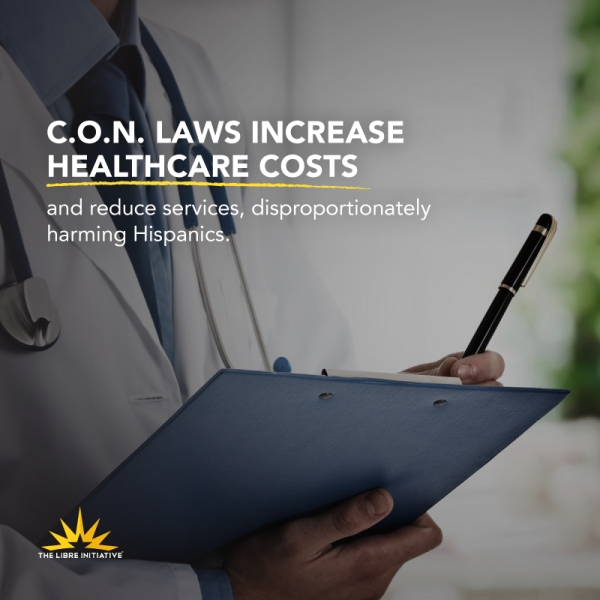No Need for ‘Certificate of Need’ Laws

For the second year in a row, Florida lawmakers have considered but then failed to pass legislation that would lessen the cost of health care, increase competition and innovation, and would take away roadblocks that prevent new health care providers from entering the market.
As a result, Florida’s onerous Certificate of Need (CON) laws are still in place, forcing providers of health care services to “demonstrate need” for their services to boards often staffed by their own competitors. The increased cost and reduced services is particularly meaningful to Hispanics, who prioritize cost over quantity in health care more than non-Hispanics. These laws thwart competition and hurt Floridians. The government must repeal these laws in order to lower the cost of health care.
CON laws were born in 1964, when states were concerned that overinvestment in health care services would cause providers to overcharge for services in order to recoup the large investment in materials. However, once implemented, CON laws actually have the opposite effect of increasing costs by lowering supply, misallocating resources, and creating barriers to entry and expansion. The effects are still seen today – health care spending is around 11 percent higher in states with CON laws.
When it became clear that CON laws have no significant cost-saving effect, special interest groups changed their story, claiming that the money they save through restricted competition allows them to care for the poor. Hospitals acknowledge that they do charge most customers higher prices under CON laws, but they claim this additional money subsidizes the poor patients who cannot themselves pay for services. However, even this dubious justification is unfounded. According to the Mercatus Center, the latest comprehensive study does not find a relationship between CON and increased care for the poor.
It quickly became clear that CON laws prevent the efficient functioning of health care markets, thus in 1987 the federal government actually repealed its previous mandate to create them. The laws are so concerning that both the Department of Justice (DOJ) and Federal Trade Commission (FTC) have both come out against them, but thirty-six states – including Florida – still have these laws on the books. This is partly because legislation to repeal a program is difficult to pass, as the current health care providers lobby hard to keep their government-bestowed special treatment and protection.
All it takes it a quick look around to see the destruction this law has caused in the Florida health system. Florida enacted its first CON program in 1973, and since then, it has resulted in less competition and fewer choices for those looking to for quality health care. Thanks in part to CON laws, there are 3,428 fewer hospital beds, up to 10 fewer hospitals offering MRI services, and 18 fewer hospitals offering CT scans in Miami-Dade County.
The lack of health care options particularly harms Hispanics, who statistically often struggle to pay for health care treatment. In Miami, a city where 70 percent of residents are Hispanic, 36 percent of residents make under $22,000 per year, and a large portion of these residents would likely not be able to afford inflated health care prices on a regular basis. Hispanics prefer low-cost options, and are also more open to using new, non-traditional health care services, but CON laws unfortunately preclude many of these potential services.
CON laws claim to be cost-controlling mechanisms, but in reality they are nothing more than unnecessary government controls that increase costs and protect entrenched health care special interests from healthy competition. Floridians need better healthcare options – next legislative session, the Florida legislature must work to remove these restrictive laws and replace them with new, free market health care reforms.

